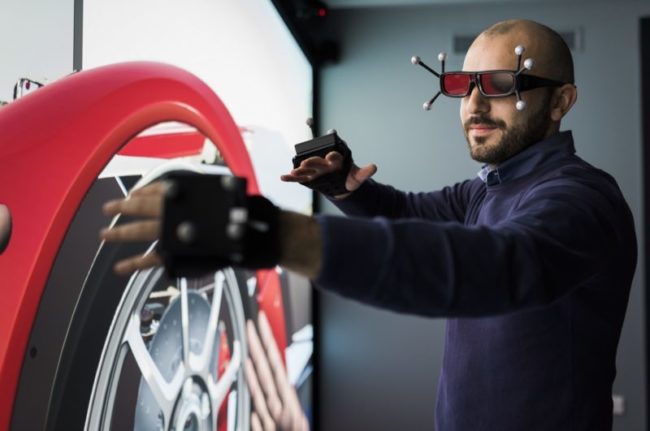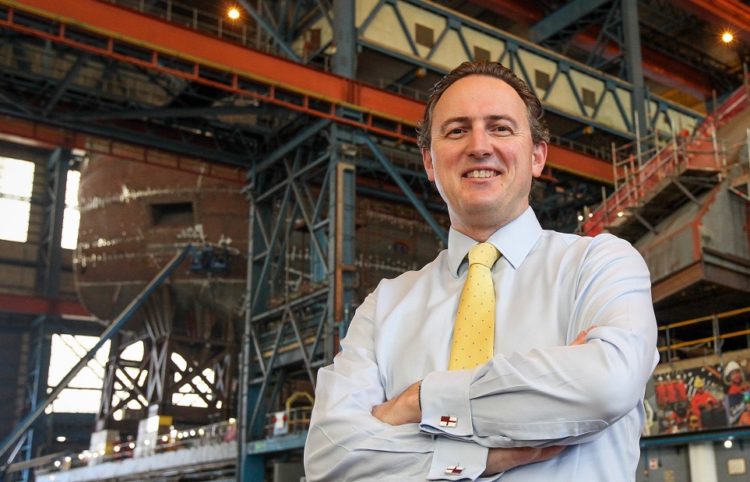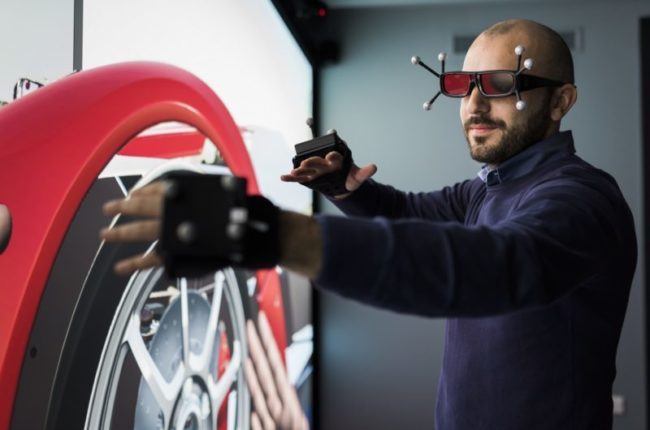University offers world class expertise to maritime firms
In a webinar organised by industry body Mersey Maritime, the University of Liverpool offered ‘world class’ R&D support to Liverpool city region maritime businesses. Tony McDonough reports

Small and medium-sized firms in Liverpool city region’s £4bn maritime sector will be offered the chance to tap into world class expertise at the University of Liverpool.
Simon Quinn, business development manager for the Port City Innovation Hub at the university, told an audience of maritime business leaders at a webinar this week: “Come and speak to us.”
Mr Quinn was one of a trio of speakers at the final Mersey Maritime Face-2-Face event of 2020. The regular events, popular with the industry body’s members, have had to shift online this year due to COVID-19 but remain well attended.
Also speaking at the event was Ben Pinnington, founder and managing director of maritime-focused PR firm, Polaris Media, and Ryan Preece from the Royal National Lifeboat Institution (RNLI).
Innovation hub
The Port City Innovation Hub is a proposed partnership between Mersey Maritime, Wirral Council and the University of Liverpool. It aims to encourage innovation among maritime SMEs, particularly in the debcarbonisation and digital arenas. The project will be a forerunner to the opening of the £23m Maritime Knowledge Hub (MKH) in Wirral’s docklands in 2022.
According to Mersey Maritime chief executive, Chris Shirling-Rooke, the partnership is about “creating a generation of companies with great ideas that fit in with what the MKH is looking to achieve”.
Addressing the members, Mr Quinn said the university had worked with more than 500 SMEs since 2012 and this latest projects, which it is hoped will be up and running in 2021, will look to continue that momentum.
It will be open to any SME working in the Liverpool city region maritime sector, or in the supply chain, that has an R&D idea that could benefit from the well of expertise on offer at the university. The ideas can be in any technical area, such as engineering, logistics or systems and processes.
Firms can access 140 hours of student research projects, at no cost, or 12 month masters projects where a student would work with the business for a year. The business would have to pay the student fees for the year.
“If you have an idea for a new innovation we would love to talk to you. We can brainstorm your ideas with our partners,” said Mr Quinn. “We can help you convert your innovation into improved products, systems and services.”
Why you need PR
Ben Pinnington has established Polaris Media as one of the leading PR firms working in the maritime sector. Based in Merseyside and Manchester, Polaris works with clients in the UK and overseas.
It was founded in 2011 and operates mainly in the maritime, engineering, manufacturing, energy and construction industries. Maritime has become its biggest sector with clients across the UK while exports markets include China, India, Oman and Poland.
Addressing the webinar, Mr Pinnington said the right PR support can be transformational for a business by changing attitudes and behaviours and growing sales. But, he added, it must form part of an overall strategic approach.
He said: “PR is not sales and it is not just an addition to your marketing activities. Communications is central to your business. Our industry body, the CIPR, describes PR as being about reputation – it is about what you do, what you say and what people say about you. The most important of those is what you do, you have to walk the walk.”

Mr Pinnington explained that the “perception of your business is the reality”. He added: “PR is the process of making sure your reputation is accurate. The businesses that are really successful put communications at their core. Look at people such as Elon Musk or Richard Branson.”
But he warned that PR “cannot work in a vacuum”. He said lots of businesses throw money at PR without really understanding it. It will not work, he insisted, if there is no overall strategy. He added: “You need to map out your objectives and how you are going to measure them… and you must try to align your business with the big themes which are decarbonisation and digitisation.
Saving lives for two centuries
The RNLI was formed by Royal Charter 196 years ago and, despite relying almost entirely on donations and fundraising for its income, still provides a vital service for coastal communities across the UK.
As one of the newest members of Mersey Maritime, the organisation is looking to grow its profile further among the Liverpool city region maritime sector. Ryan Preece told those at the event: “We don’t have the relationships with the maritime sector here that we ought to have.”
Mr Preece offered a presentation illustrating the critical role the RNLI plays in keeping our coastlines as safe as possible. In 2020 alone the organisation’s skilled volunteers have used lifeboats to help 9,379 people and saving 374 lives.
“If you spend time with these individuals and their family members then it really brings home what it is we do,” he said. “We talk about ourselves as ‘one team’, not just everyone who works for the RNLI but everyone who supports us.”
The RNLI costs £181.5m a year to run – that is £6 every second. It has 5,600 volunteer crew members, more than 1,500 lifeguards and 238 lifeboat stations. Merseyside is the only part of the UK where it offers 365-day-a-year cover. In the city region it has three lifeboat stations, 10 lifeguarded beaches and six fundraising branches.
It also operates flood rescue teams which provide a vital service, particularly in areas such as Cumbria, and also runs an extensive water safety programme. Its Swim Safe initiative has given swimming lessons to 22,000 children.
Mr Preece said: “The RNLI has a real presence around Merseyside in terms of our fundraising buckets but we have probably not tapped into the maritime sector as much as we could have done. We are not just asking for your support but we also want to get involved with your organisations.”

